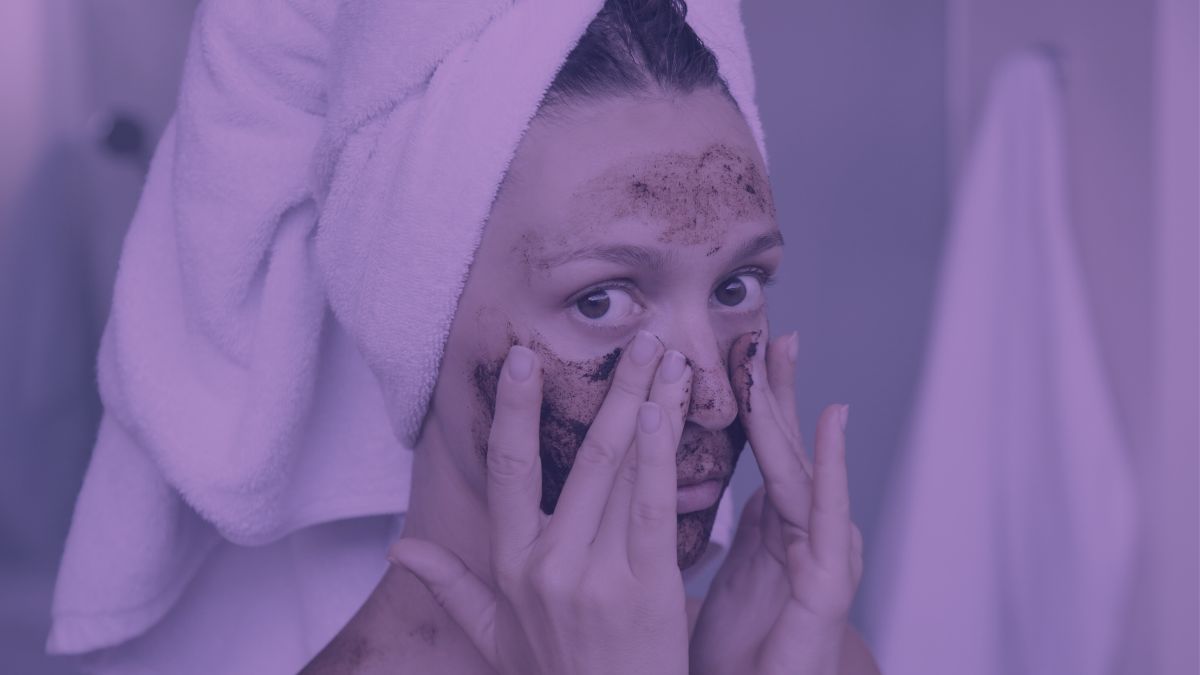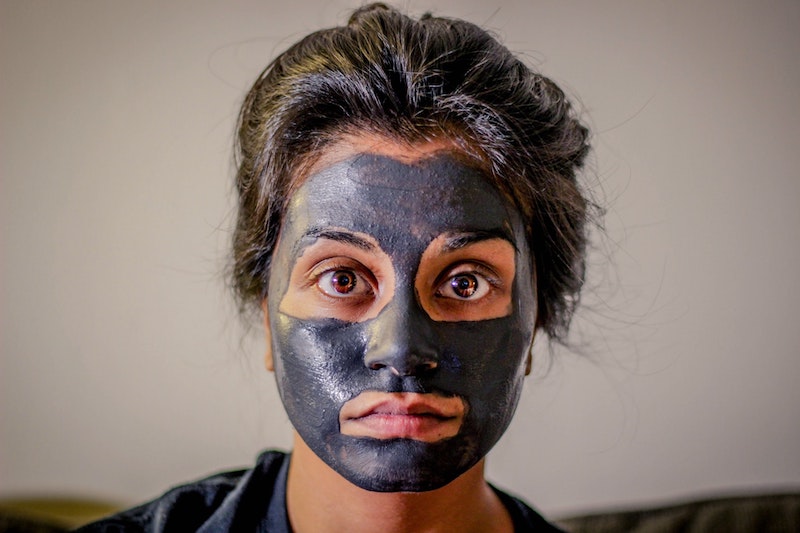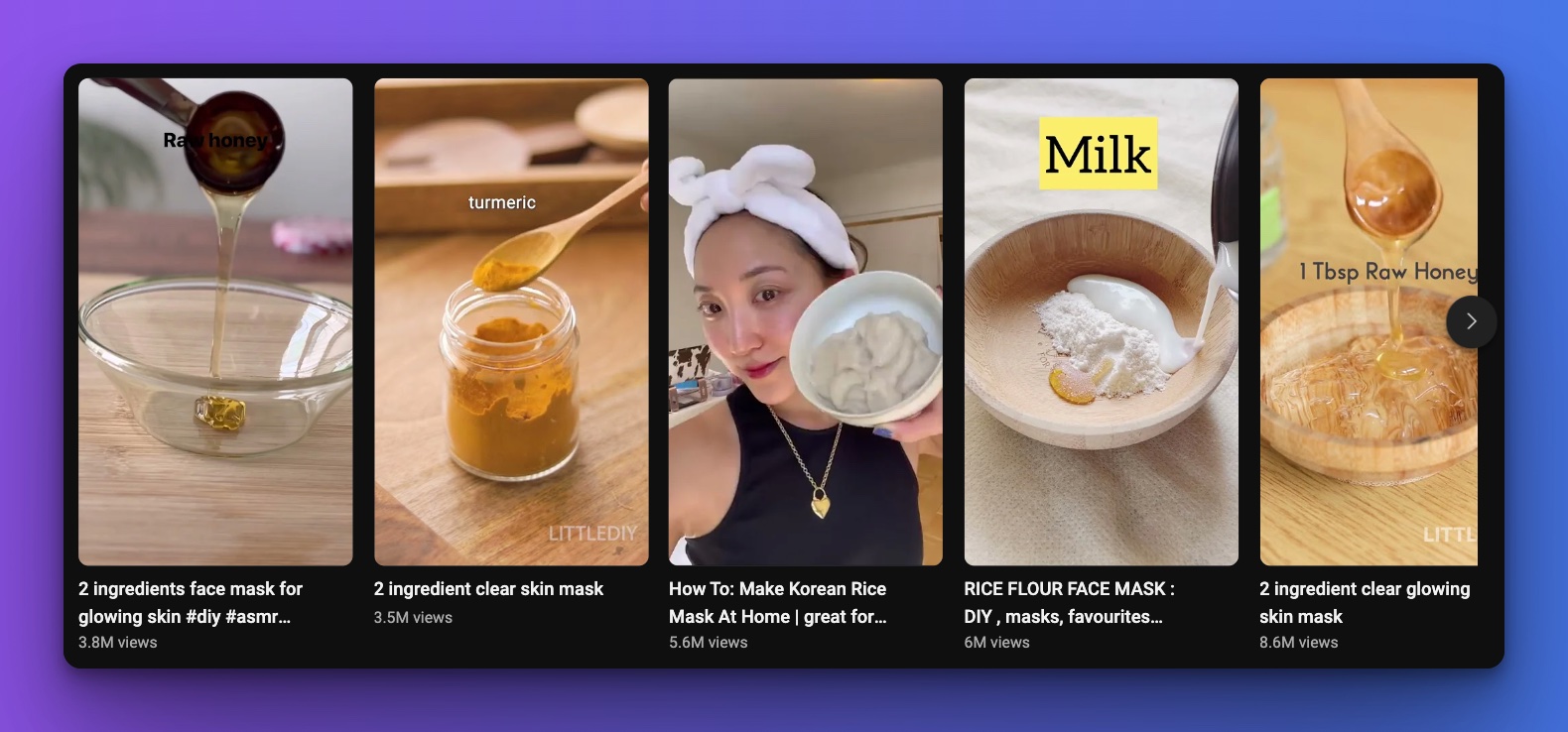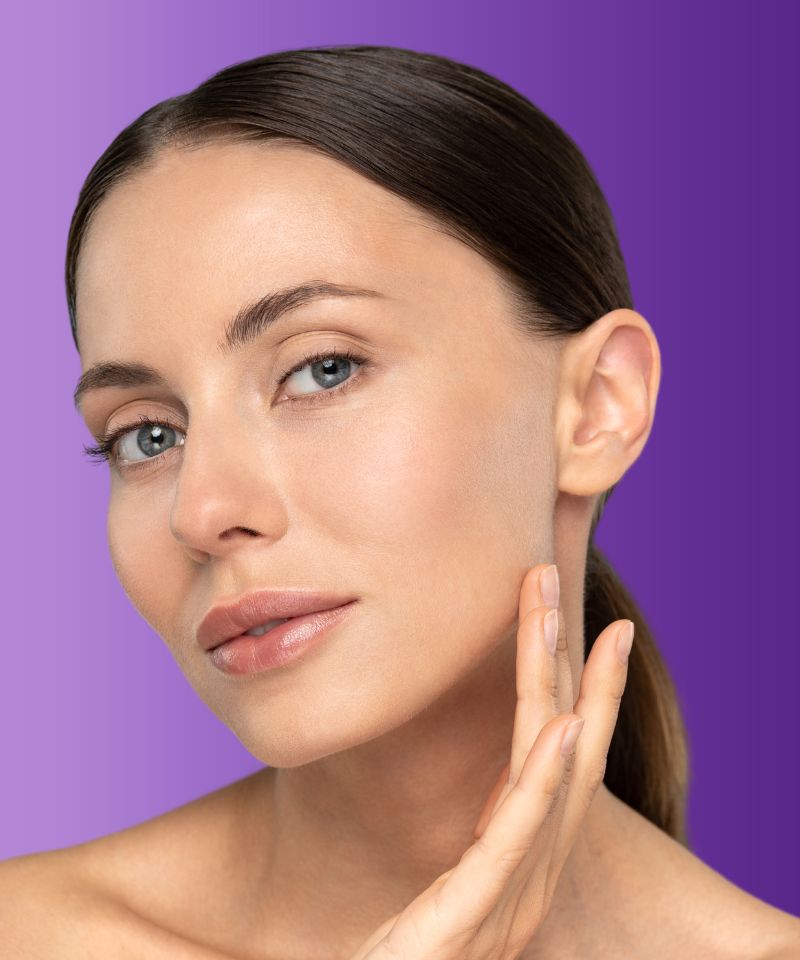Homemade DIY face masks can be fun to make, and their low cost certainly sounds like an attractive solution for various skin concerns.
However, despite the claims that “natural” skincare solutions are a safer option than properly formulated skincare, DIY face masks are never as effective as they’re made out to be.
But don’t take my word for it just yet.
Continue reading to fully understand why homemade DIY face masks don’t work for the skin and why everyone should prefer the expertise of licensed cosmetic chemists to foodstuffs from our pantry.

What Are Homemade Face Masks?
Homemade face masks, a rising trend in the skincare world, are concoctions made from ingredients typically found in your kitchen cabinet.
Often promoted on platforms like Pinterest, these DIY remedies promise to address various skin concerns using only natural ingredients.
Common ingredients in homemade face masks include cooking oils such as olive oil, coconut oil, chia seed oil, spices, food additives, and fruits and vegetables.
Some even include salad dressings such as apple cider vinegar or other food items to treat specific concerns such as acne.
These ingredients are typically mixed to create a paste or mask that is then applied to the skin.
In addition to these food-based ingredients, some homemade face masks may incorporate a few drops of essential oils.
The intent behind this is to leverage the purported healing properties of these oils to help address specific skin issues.
Do Homemade Face Masks Work for Skin?

While using all-natural ingredients may seem appealing, it’s important to approach the DIY face mask trend with caution.
Homemade face masks, though marketed as safer alternatives to lab-formulated skincare products, may not work for the skin and can often exacerbate existing concerns.
While it’s logical to think that “if it’s good enough to be eaten, then it must be good enough to be applied to the skin,” this perspective overlooks some critical aspects of skin science.
Understanding Skin Absorption
DIY face masks don’t work for the skin because the skin functions differently from our digestive system.
While our stomach absorbs nutrients from food and delivers them to our skin via the bloodstream, the skin itself is designed primarily as a barrier – its job is to keep things out, protecting our internal organs from external aggressors.
Consequently, applying food-based face masks does not necessarily deliver any nutritional benefits to the skin.
The antioxidants, vitamins, and nutrients in these foods are unlikely to penetrate the skin and make any significant difference.
Additionally, nutrients from food applied to the skin can’t attach themselves to the appropriate receptors to make any difference because their purpose is to be metabolized by our bodies and delivered where needed through our bloodstream.
Simply put, the skin doesn’t have the necessary mechanisms to metabolize and utilize these nutrients in the same way our digestive system does.
Understanding Skin’s pH
Secondly, the skin’s pH level plays a vital role in its health.
The pH scale ranges from 1 (most acidic) to 14 (most alkaline), with 7 being neutral.
Healthy skin is slightly acidic, with a pH between 4.6 and 6.2.
This acidity is maintained by the skin’s acid mantle, a protective layer composed of sebum (oil produced by the sebaceous glands) mixed with lactic and amino acids from sweat.
Comparatively, the pH of the stomach ranges between 1.5 and 3.5.
Many food items have a pH within this range, making them suitable for digestion but not necessarily ideal for topical application to the skin.
For example, applying a food item, such as lemon, with a pH of 2-3 to the skin, which is supposed to have a pH of 4.6 – 6.2, will likely cause unwanted reactions, such as irritation, redness and even burns.
On the other hand, applying baking soda, which has a pH of 9, to the skin can cause it to become dry and dehydrated and even start peeling, flaking, and cracking, which can increase the risk of infections.
In conclusion, while DIY face masks may seem like a safe and affordable skincare solution, they may not provide the expected benefits and could disrupt the skin’s pH balance and barrier function.
Therefore, it’s crucial to understand these factors when considering DIY skincare remedies.
The Short-Term Skin Benefits of DIY Face Masks
Although the effectiveness of DIY face masks is definitely lacking and can’t replace a good skincare regimen, there are modest, short-term benefits that some individuals may experience.
Certain natural oils, such as olive oil, can temporarily soften the skin and improve the appearance of dryness, patchiness, and a rough, bumpy texture.
Similarly, using ingredients with natural acidity, like yogurt, might provide a fleeting brightness to dull skin and temporarily soothe redness and irritation, especially if these are caused by sunburns.
However, it’s crucial to remember that these benefits are typically superficial and short-lived, and DIY face masks should not substitute a comprehensive skincare routine tailored to your individual skin needs.
Some Possible Side Effects of DIY Face Masks

Homemade face masks are considered a fun and economical way to pamper your skin, but they can come with potential risks.
Here are some of the common side effects of DIY face masks:
Irritation and Allergies: Natural doesn’t always mean safe for everyone, and food items like lemon, apple cider vinegar, and baking soda can cause irritation or allergic reactions for some.
Bacterial Contamination: Kitchen-sourced ingredients can harbor bacteria that may lead to skin infections when applied to the face, especially if the ingredients are not fresh or properly handled.
Unpredictable Results: Since DIY masks are not scientifically formulated, they can produce inconsistent and unpredictable results, potentially leading to disappointment or harm to the skin.
Over-Exfoliation: Ingredients with exfoliating properties, such as sugar or salt, can cause micro-tears in the skin if used too frequently or with excessive force.
Acne Flare-Ups: Certain oils and butters in DIY masks may clog pores and lead to acne breakouts in those with oily or acne-prone skin types.
pH Imbalance: Some homemade mask ingredients may disrupt the skin’s natural pH balance, leading to increased skin sensitivity and potential for damage.
Poor Absorption: Ingredients in DIY masks are not formulated to penetrate the skin’s protective barrier, resulting in minimal absorption and limited benefits.
What Works Better Than DIY Masks?

Eating Right for Your Skin
What you put into your body is just as significant as what you apply to it when it comes to skin health.
In fact, your skin will likely benefit more from eating the food items commonly used in homemade masks than from using them topically.
This is because your body will absorb and metabolize essential nutrients more effectively and carry the beneficial components through the bloodstream to the cells, infusing them with the energy needed to function optimally and fight damaging aggressors such as free radicals more effectively.
This will result in healthier, more resilient skin that can fend off cellular malfunctions that lead to symptoms such as premature signs of aging, inflammation, and inflammatory conditions such as acne, pigmentary disorders, etc.
Here are some of the best foods for clear, healthy, and radiant skin:
Fatty Fish: Rich in omega-3 fatty acids that help protect your skin against UV damage, dryness, and inflammation.
Avocado: Contains healthy fats and antioxidants like vitamins E and C to keep your skin hydrated, plump and supple.
Green Tea: Packed with polyphenols that have anti-inflammatory properties and can also help prevent collagen breakdown, making your skin firmer and more youthful-looking.
Berries: Rich in vitamin C, which helps fight free radical damage and promotes healthy cell development.
Oysters: Known as the best dietary source of zinc, an essential mineral that helps keep your skin strong by supporting cellular renewal and healing.
Pumpkin: Loaded with beta-carotene, which converts to vitamin A in the body, an antioxidant essential for skin health as it aids cell turnover and collagen production.
Dark Chocolate: Contains antioxidants that protect the skin from sun damage and promote healthy blood flow for a radiant complexion.
Using The Right Ingredients for Specific Skin Concerns
Scientifically-backed ingredients in skincare products can considerably improve your skin’s health and appearance.
And since most people use DIY masks for the vitamins and properties of many appropriately formulated skincare products, there’s no need to make them yourself and risk subpar or even harmful results.
Here are some of the best ingredients to address specific skin concerns:
Vitamin C: As a powerhouse antioxidant, vitamin C aids in protecting the skin from free radicals and can help with pigmentation and texture.
Hyaluronic Acid: Known for its incredible ability to retain moisture, hyaluronic acid can help keep the skin hydrated and plump.
Niacinamide (Vitamin B3): A versatile ingredient found in many over-the-counter products, niacinamide can strengthen the skin’s barrier function, reduce redness, and balance oil production.
Salicylic Acid: A beta-hydroxy acid (BHA) that helps unclog pores and exfoliate dead skin cells, making it an excellent choice for acne-prone skin.
Retinol (Vitamin A): Considered the gold standard anti-aging ingredient, retinol helps promote cellular turnover and collagen production for smoother, firmer skin.
Frequently Asked Questions
Are DIY Face Masks Safe?
While DIY face masks can be fun and made with affordable ingredients, it’s important to approach them with caution as they can sometimes exacerbate existing skin issues and may not provide the desired effects that professionally formulated products offer.
Can I Use Homemade Face Mask Every Day?
Using a homemade face mask daily is not recommended as it may lead to skin irritation or damage due to the lack of controlled formulation and scientific testing.
Are Homemade Face Masks Good for Your Skin?
Homemade face masks can temporarily help relieve minor skin concerns such as dryness, but for consistent and safe results, commercially available, dermatologically tested products are often recommended.
READ NEXT: Do Face Masks Cause Acne?

My name is Simone and I am a certified skin specialist. I created this website to teach my readers how to take great care of their skin and I also like to occasionally share my honest opinions on skincare products I’ve tried. You can learn more about me here.

Thank you for sharing these tips! Do you think it would be a good idea to use some CBD lotions when making these masks or would that not work?